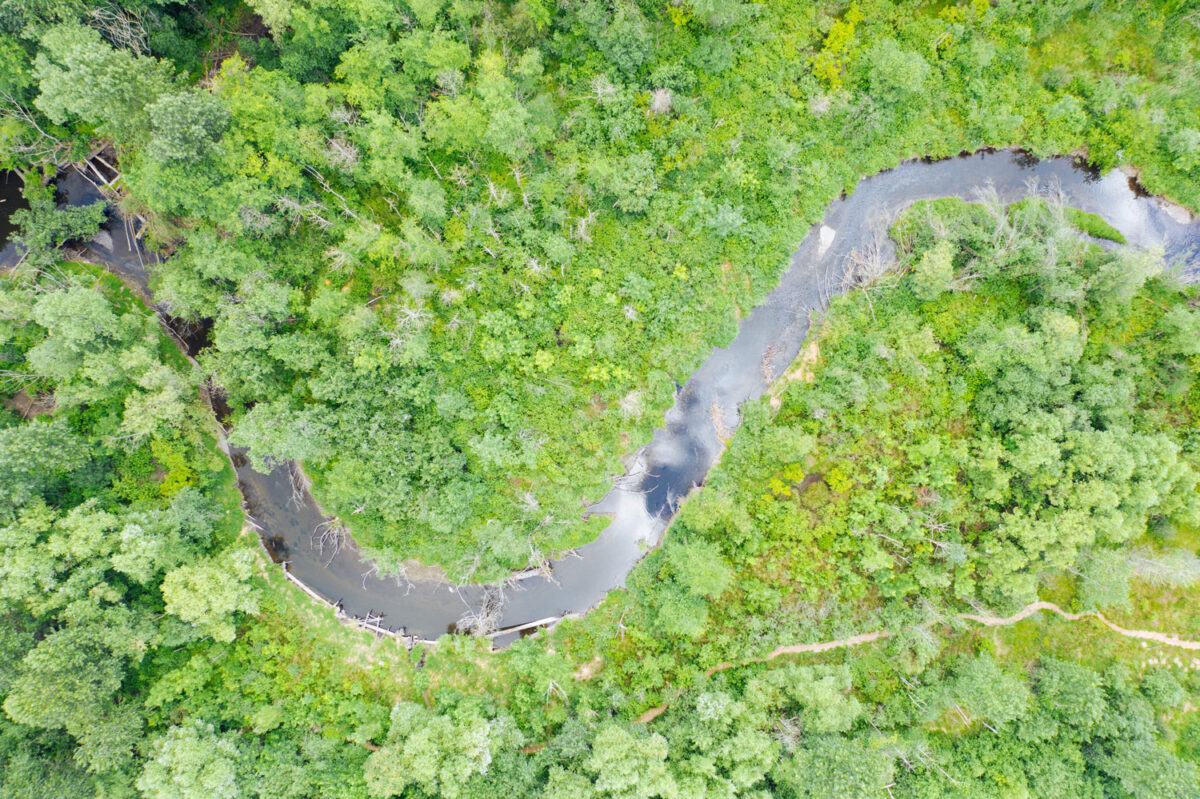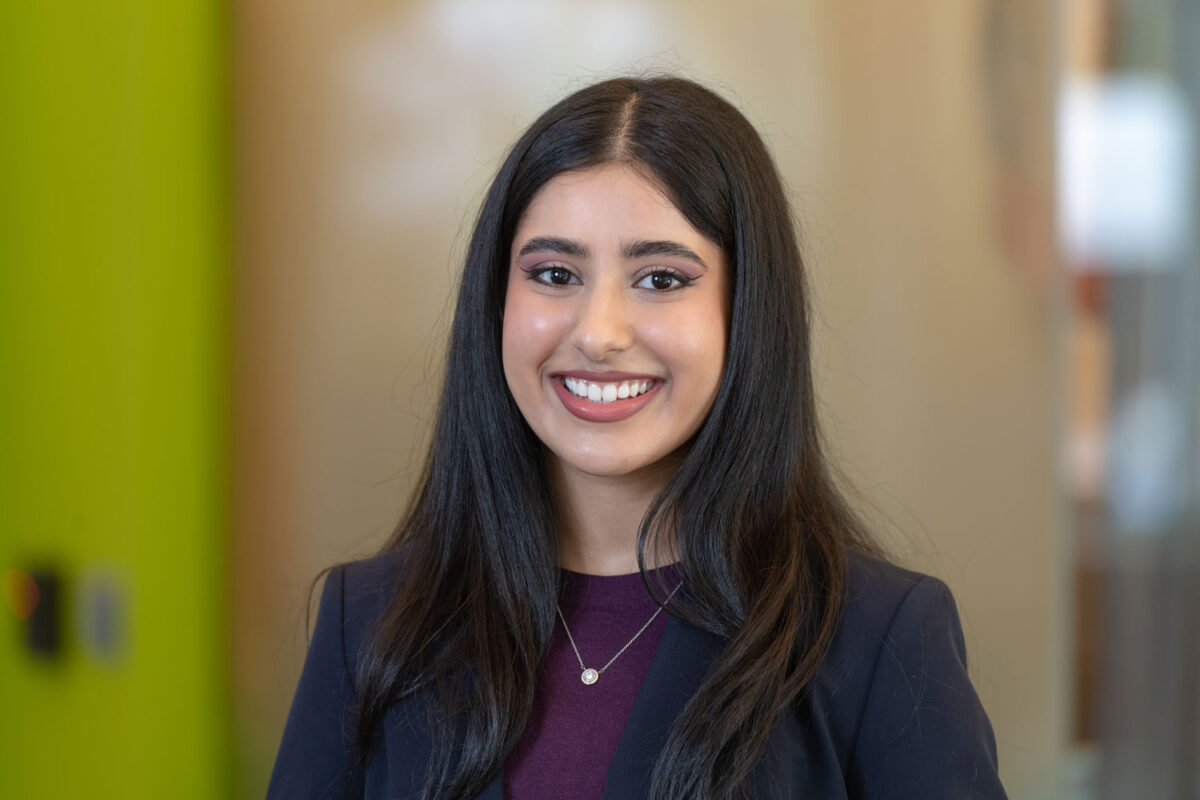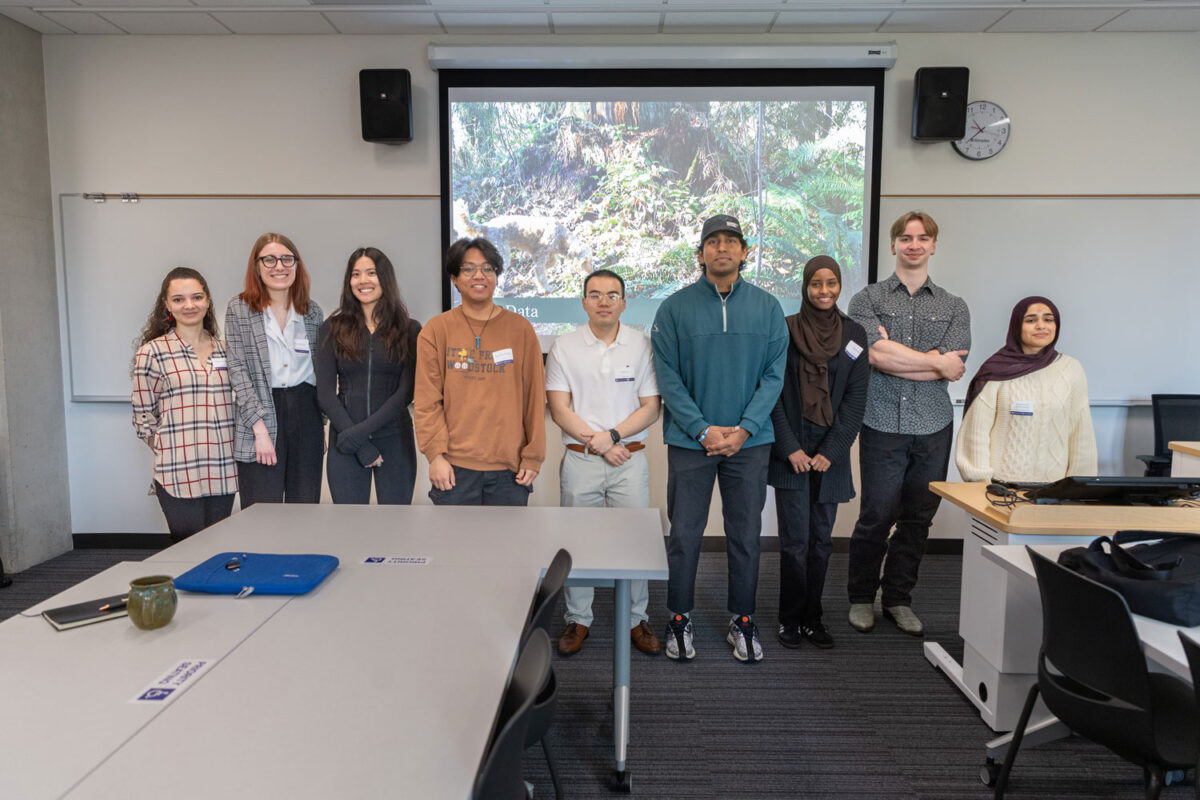
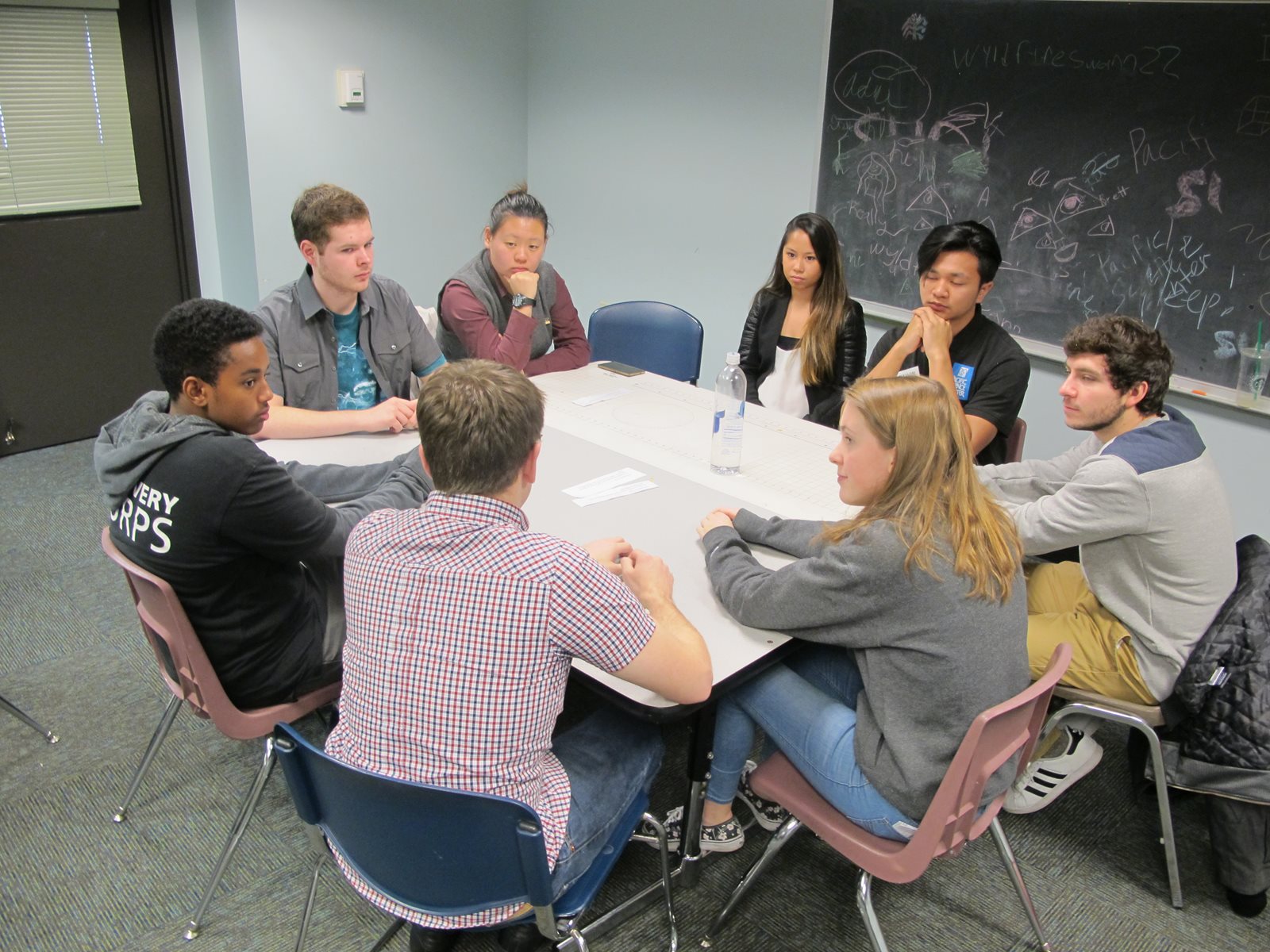
UW Bothell students talk with high school interns at the Pacific Science Center about the transition to college life.
By Douglas Esser
It’s a myth that eating fizzy Pop Rocks candy and washing it down with carbonated soda could cause your stomach to explode, although it could cause some serious belching or flatulence.
University of Washington Bothell first-year students busted the exploding stomach myth by measuring the sudden expansion of balloons placed over various soda bottles at the moment of Pop Rocks effervescence. They documented their findings in a video that was shown with other student “myth busters” on one of the big Imax screens at the Pacific Science Center.
“It was a fun project,” says Charity Lovitt, lecturer in the School of Science, Technology, Engineering and Mathematics.
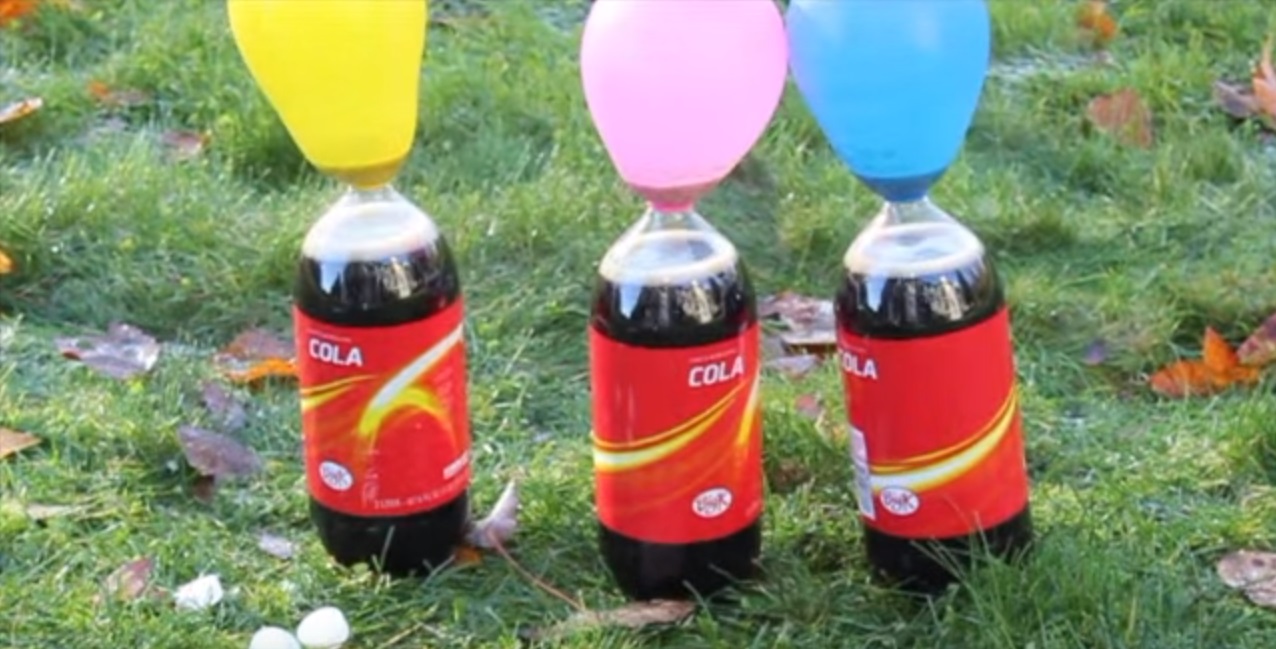
It also was a serious exercise in the scientific method and an example of integrated and community based learning on which UW Bothell prides itself.
Eight myth busters YouTube videos were the final project for about 30 students from the Science and Technology Community in the Living Learning Community.
When first-year students confirm their housing at UW Bothell, they can also apply to the STEM Living-Learning Community Program for the year.
“This community of students not only live together in the same residence hall, but they also take the same Discovery Core class in the fall,” said Lovitt.
That’s integrated learning — “Integrated with their lives, integrated with the campus, integrated with their education and the community – in this case the Pacific Science Center,” she said.
The center joined with the university thanks to the role of Lovitt, who also volunteers at the center as a science interpreter.
That’s where an equally important part of the project took place in December when UW Bothell students presented their videos on an Imax screen to about 30 members of the science center’s high school interns, called the Discovery Corps. The event included meetings over pizza between the college and high school students where they talked about the transition to college.
“It was really wonderful to hear our first-year students talk about their college experience at UW Bothell to youth who are not much younger than them — great authentic connections were made between the youth and our students,” said Kara Adams, interim director, Community-Based Learning and Research at the university.
It was a collaborative approach with both sides recognizing the other’s expertise, Lovitt said. UW Bothell brought the videos and college experience. The science center interns brought their expertise in communicating science, and their opinions of the videos accounted for 10 percent of the grade.
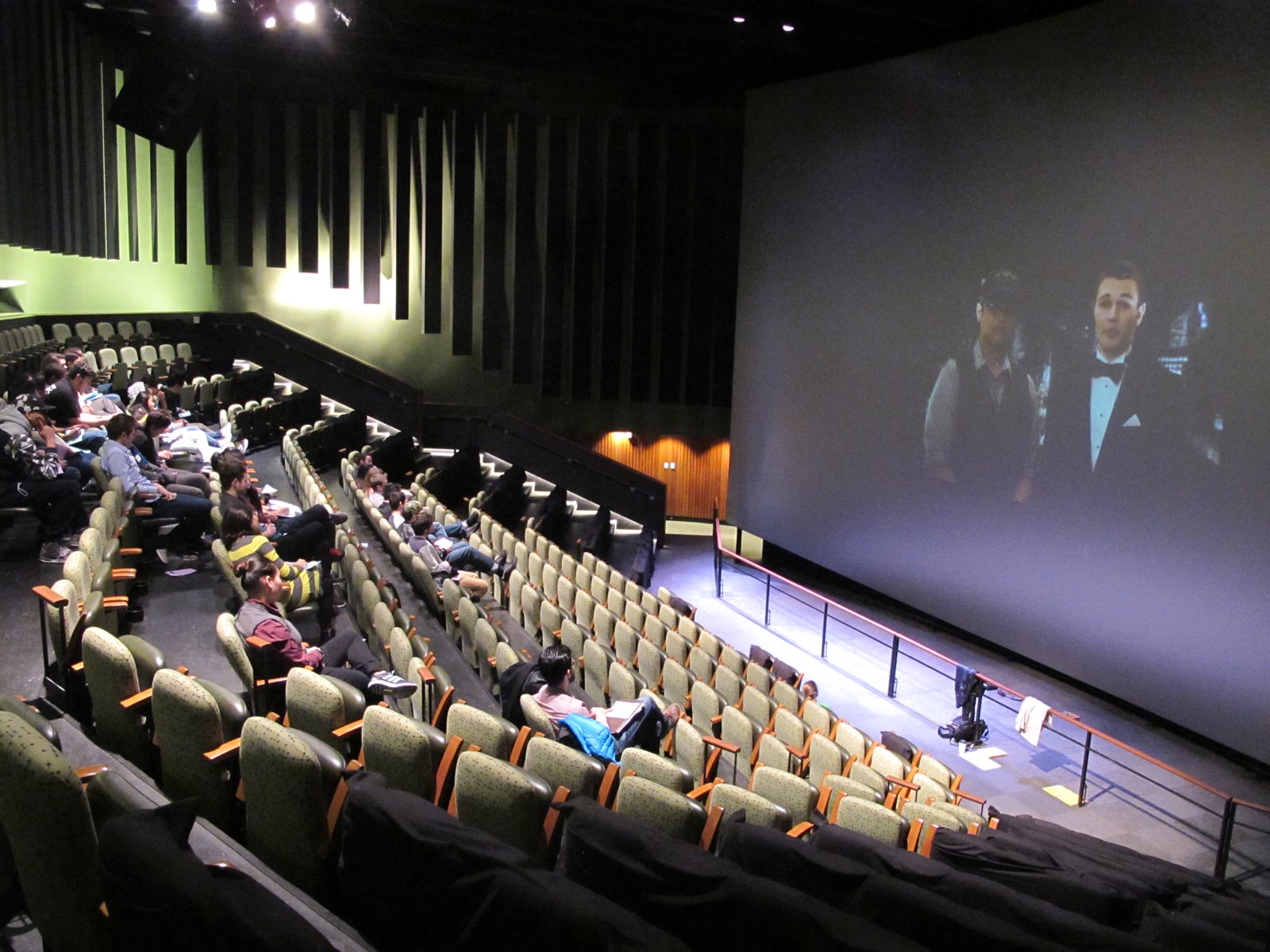
The highest-rated video was titled “Is It Dirtier Than a Toilet?” The students cultured bacteria samples from a door handle, keyboard, cell phone and kitchen sponge and compared them to a culture from a toilet handle. (They found a lot more bacteria on a kitchen sponge than a toilet handle.)
Some other myth buster videos included, “Does bubble gum stay in your stomach for six years?” and “Does time fly when you are having fun?” All the videos will be shown on campus on March 1.
Student Adham Baioumy said he loved imitating the “MythBusters” TV show.
“You can only imagine how excited I became about the assignment. Being a first year student at UW Bothell, this assignment gave me a very powerful connection to many resources on campus, from the library for research to the IT desk to make our videos!”
He says the best part was presenting the projects at the Pacific Science Center.
“Having such a great opportunity as a first-year student just adds to the excitement of being in college, I now feel like my work is being given back to the community instead of a grade.”
Discovery Corps Supervisor Josh Kemper says the event worked out wonderfully at the science center.
“Discovery Corps focuses on supporting teens who are underrepresented in the STEM fields so the myth busters video event with UW Bothell was a great opportunity for my students to meet college students who are very similar,” Kemper said.
The Discovery Corps encourages students to graduate high school but this event allowed them to think of a possible future in higher education, he said.
“Yes, the videos and the process was educational but the real magic seemed to happen during lunch over pizza when students from UW Bothell and Discovery Corps were able to get together and just be themselves,” Kemper said. “I believe that those kind of interpersonal interactions are the most powerful in helping my students think about what could be next.”
Take a look at UW Bothell students’ myth buster videos:
Can Pop Rocks and soda make your stomach explode? https://youtu.be/apCTaxoPiA0
Is it dirtier than a toilet? https://www.youtube.com/watch?v=nnSPWTxvEoI
Do twins think alike? https://www.youtube.com/watch?v=NzlwI2rIYi8
